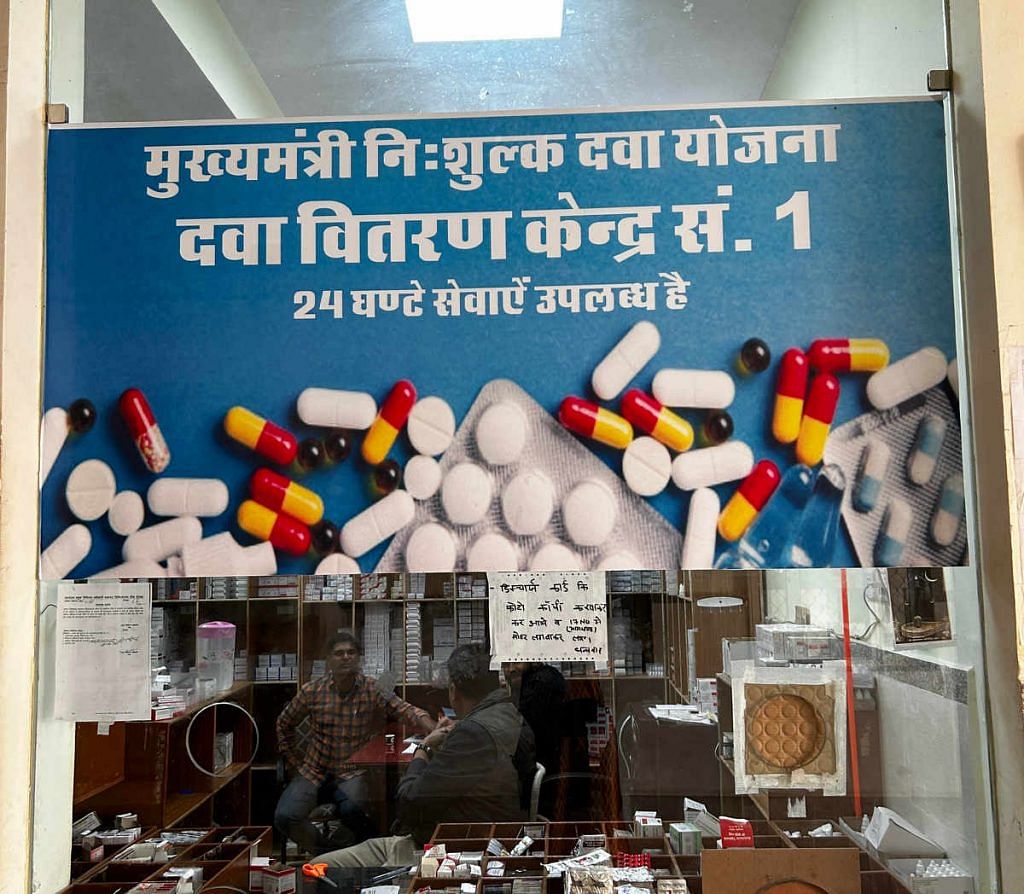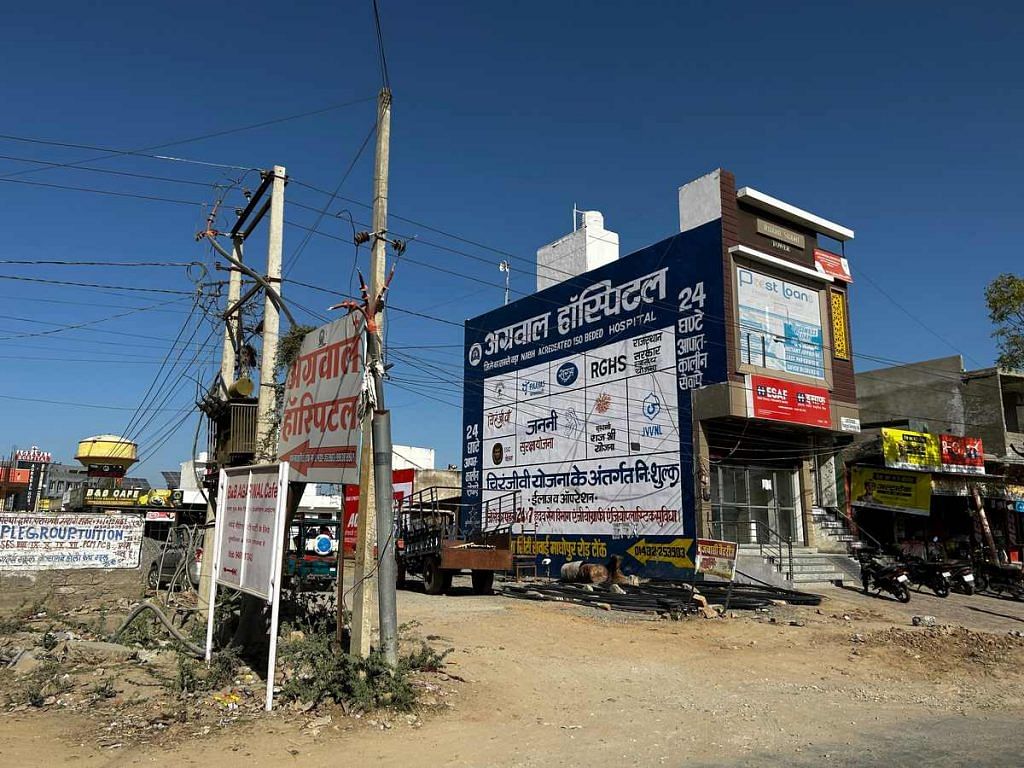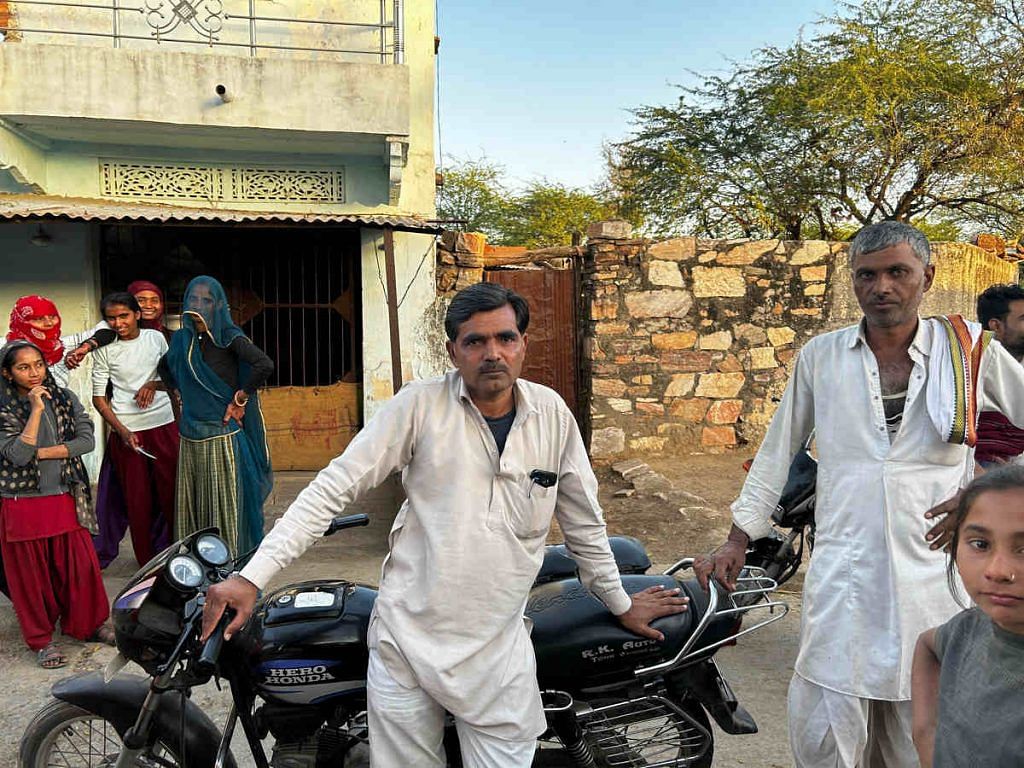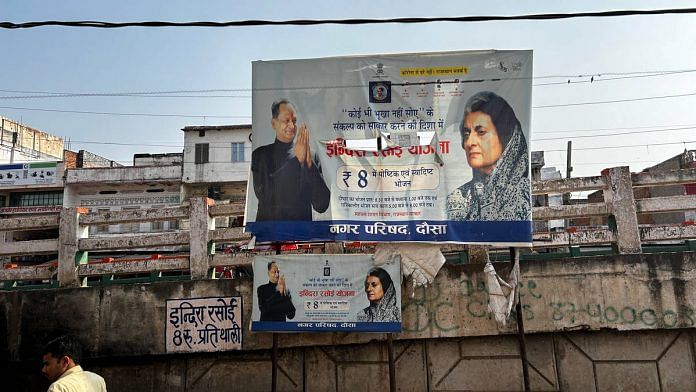Jaipur: For the Congress in poll-bound Rajasthan, there seems to be no better election advertisement than the welfare-heavy Budget that Chief Minister Ashok Gehlot presented in the state assembly earlier this month.
From cities to small towns to villages, it’s difficult to walk a few steps before encountering a hoarding, banner, or poster of Gehlot beaming alongside a Budget-related tagline. This Budget’s motto — Bachat, Rahat, Badhat (Savings, Succour, Success) — often appears in big bold letters, as do various state government schemes.
“Gas cylinder sirf Rs 500” announce some, others advertise “100 units free electricity” or that the Chiranjeevi health insurance scheme “is now Rs 25 lakh” per household (from Rs 10 lakh earlier).
This aggressive push from the Congress government to highlight its welfare schemes in an election year has led to criticism about “populist schemes” and “chunavi revadi (poll freebies)” from the BJP.
But ever since it came to power in 2018, the Gehlot government has laid an emphasis on welfare schemes and trumpeted them with gusto. The CM, in fact, claimed last December that the state’s programmes warranted national-level implementation.
Notably, the previous Rajasthan Budget, too, included numerous welfare measures despite it not being an election year, but implementation has not always been consistent. There have also been long-running concerns, oft-repeated by BJP leaders that announcing slews of sops is not fiscally prudent.
Also read: Task force for paper leaks, Rs 25L insurance cover: Gehlot rains sops in budget ahead of polls
Birth to grave, Gehlot has something to offer
Ever since it came to power in 2018, Rajasthan’s Gehlot-led Congress government has focused on schemes around food, social security, education, healthcare, and pension benefits.
In keeping with tradition, the 2023-24 Budget is also pro-poor, but with ramped-up freebies and subsidies.
One instance of this is the Rs 700 subsidy on LPG cylinders for those below the poverty line, bringing the overall cost down to Rs 500 — considerably more pocket-friendly that the central government’s Rs 1,200.
Then there’s the promise of 100 units of free electricity per month for all, a bump up from 50 units earlier. There’s also going to be free electricity for the over 11 lakh farmers who use less than 2,000 units each month.

Another much-touted scheme is the Indira Rasoi scheme for subsidised meals, which will now be expanded to rural areas. The increase in the per-family medical cover of the flagship Chiranjeevi Swasthya Bima to Rs 25 lakh from Rs 10 lakh is a big-ticket item too.
The state government has also promised to extend the Old Pension Scheme, which it had announced in the last Budget, to members of boards, corporations, academies, and universities, although there has been some pushback from the Centre over the release of funds.
The OPS, discontinued in 2003, entitled government employees to a monthly pension after superannuation, usually half of their last drawn salary. Under the New Pension Scheme (NPS), employees contribute to a pension fund and get a lumpsum after retirement.

The Gehlot Budget has also paid special attention to women — from a free sanitary napkin scheme with a budget of Rs 200 crore, to a programme called Jagriti to bring women back to the workforce, to a plan to distribute mobile phones with three years of free internet data to 1.35 crore women.
“The objective is to transform rural women into entrepreneurs under the Chief Minister Digital Seva Yojana,” said a source in the Chief Minister’s Office.
On the education front, the government is planning to add 1,000 more Mahatma Gandhi English-medium schools for disadvantaged children. According to data shared by the chief minister’s office, there are a total of 1,700 Mahatama Gandhi English Schools in Rajasthan at present, where three lakh students are enrolled. In the previous budget, 2,000 of these schools had been announced.
Further, now 30,000 meritorious students can get free coaching under the Anuprati scheme, up from 15,000 earlier. There are several other initiatives in the works as well, from free scooties for certain categories of students to vouchers for residential facilities.
Mixed reactions
Despite the array of sops, the public is not uniformly impressed, whether it’s the latest Budget’s promises or schemes that were announced earlier.
“This is a chunavi (election) budget,” said Nand Lal, the former village head of Tonk district’s Sohela panchayat and a BJP worker.
“Pension is good but not everyone gets it. The Chiranjeevi scheme is also good, but it was earlier the Bhamashah scheme under [former BJP chief minister] Vasundhara Raje.”

A village of 2,800 with a predominantly Gujjar population, Sohela largely voted in favour of the Congress in the last elections, according to Lal.
Some residents, though, are largely pleased with their choice, like 65-year-old widow Kapoori Devi. Her family benefits from numerous government schemes for healthcare, social security, and education.
While Devi’s widow pension is a useful addition to the family’s finances, she is hopeful that the state government will generate more employment opportunities.
The Opposition BJP, meanwhile, has alleged that the government’s “populist” and “politically motivated” measures will only serve to increase the state’s debt burden.
“These are populist schemes. The biggest issue of the state is law and order and they only sanctioned 3 per cent of the Budget to address this,” state BJP president Satish Poonia told ThePrint.
“There is a debt of Rs 5.5 lakh crore on the state government. How are they going to implement these schemes? There is a huge gap between declarations and execution,” he added.
In a similar vein, BJP state general secretary Bhajan Lal Sharma described the sops as “chunavi revadi”.
“People on the ground are very irritated with Congress,” Sharma told ThePrint. “Where is the money to implement these schemes?”
On this question, state Congress president Govind Singh Dostara expressed confidence.
“We are going to implement the new Budget from 1 April, and we have already sanctioned funds for all the promises that the Congress has made,” he said.
While Gehlot earlier denied allegations of the Budget being geared towards elections, Dostara acknowledged a desire to win hearts via government schemes.
“We are reaching every section of the society through these schemes, good governance, and solutions. We are hopeful that [the people] will shower us with their love,” Dostara told ThePrint.
Experts, meanwhile, are cautiously optimistic that if executed properly, some of the announced welfare schemes could have far-reaching benefits.
“Scooties for students, scholarships, free health and medicine, and most importantly, the gas cylinder price of Rs 500 will make a huge difference among the lower middle class and the poor,” said Rajiv Gupta, a retired professor from the social sciences department at Rajasthan University.
While he emphasised that implementing such programmes “rigorously” was key, he added: “Currently, it looks like millions of beneficiaries can be turned into voters.”
(Edited by Asavari Singh)
Also read: Why Rajasthan Right to Health Bill has become flashpoint between doctors & civil society groups



